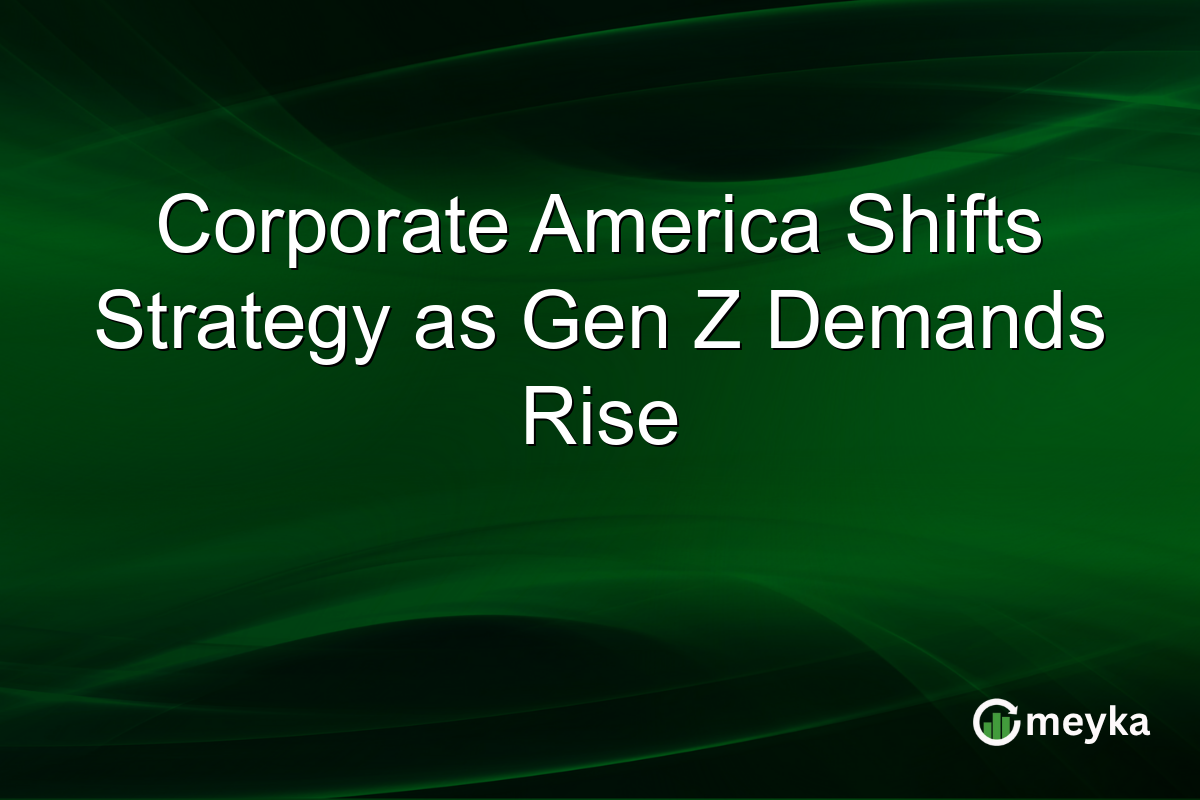Corporate America Shifts Strategy as Gen Z Demands Rise
As Gen Z enters the workforce in greater numbers, companies across the United States are making significant changes to attract and retain this dynamic group. Unlike previous generations, Gen Z employees prioritize flexibility, mental health benefits, and social responsibility. This shift is forcing corporate America to adapt its strategies in hiring and management. Recent reports emphasize how these changes are reshaping the future of work.
Understanding Gen Z’s Unique Workforce Expectations
Companies are noticing that Gen Z workplace trends lean heavily toward flexibility and personal well-being. According to a recent report by CNBC, more than 70% of Gen Z employees value flexible work arrangements as crucial. This includes options like remote work and adjustable hours. The demand for mental health resources is also increasing, with many Gen Z workers expecting comprehensive support from their employers. Social responsibility is another significant factor. Gen Z cares deeply about social causes, expecting their employers to have strong social and environmental practices. This generation’s preference for workplaces that align with their values is pushing companies to be more transparent. For detailed insights, visit CNBC.
Challenges in Recruiting and Retaining Gen Z Talent
The Gen Z recruitment challenges revolve around meeting these expectations. While competitive salaries remain important, they are not enough. Companies face the difficult task of reshaping work environments to be more inclusive and development-focused. According to Bloomberg’s latest analysis, there’s a strong desire among Gen Z for roles that offer continuous learning opportunities. This leads firms to invest in training programs and mentorships to attract younger talent effectively. The cost and effort associated with these initiatives are high, but the potential returns in employee loyalty and satisfaction are significant. More information can be found on Bloomberg.
Corporate Adaptation and Strategic Shifts
Gen Z corporate adaptation is becoming a priority for many firms, especially as labor markets tighten. Companies are leveraging social media and networking platforms to reach potential Gen Z candidates, tailoring messages to reflect the organization’s values and mission. Internally, HR departments are transforming to emphasize inclusivity and employee engagement. Adaptations like these are crucial as businesses strive to blend traditional work practices with modern expectations to sustain their competitive edge. For a deeper dive into these trends, check Wall Street Journal.
Final Thoughts
The Gen Z impact on workforce dynamics is undeniable, compelling companies to reevaluate their recruitment and retention strategies. By focusing on flexibility, mental health, and social values, firms can better align with Gen Z’s expectations. While the challenges are substantial, the payoff in tapping into this energetic and value-driven cohort can be significant. As companies continue to evolve, utilizing insights from platforms like Meyka can provide real-time analytics to navigate these changes.
FAQs
Gen Z workplace trends focus on flexibility, mental health benefits, and social responsibility. Employees expect remote work options and value environments that support personal well-being and ethical practices.
Gen Z affects recruitment by demanding more than just competitive salaries. Companies must offer development opportunities, flexible work conditions, and demonstrate strong social values to attract Gen Z talent.
Companies face challenges like adapting work environments to be inclusive and developing programs for continuous learning. These changes require substantial investment but offer significant potential returns in loyalty and satisfaction.
Disclaimer:
This is for information only, not financial advice. Always do your research.






